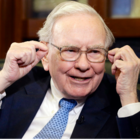PHIL BEUTH spent his entire broadcasting career with one company. As the first employee of a fledgling media startup in 1955, Phil worked his way up over a 40-year span, as Capital Cities grew to become one of America's most influential and successful media companies. Limping on Water is a Dickensian rags-to-riches tale of a disadvantaged boy, born with cerebral palsy who, through luck, pluck, strength of character, skill, persistence and loyalty, rose to become a top executive at one of America's most respected and successful media companies, Capital Cities Communications; "The minnow that swallowed the whale." Phil was born in a blue-collar neighborhood of Staten Island to parents of English and German stock in 1932. To state that his origins were humble is like saying the Yankees know a thing or two about baseball. The young struggling family was crushed by the tragic death of Phil's father when Phil was just four, causing his mother to park her young, physically impaired son with her step-father, an embittered, war-wounded veteran (of the Spanish-American War!), who ran a ramshackle "Sanford and Son" junk business out of his backyard. What propelled this boy to raise himself by his orthopedic bootstraps to become a respected and honored leader in his field, a member of two Broadcasting Halls of Fame, head of Good Morning America and a Division President of ABC? What comes through this very personal account--peppered with interesting and amusing anecdotes about his partners and celebrities like Ted Knight, Lowell Thomas, Charlie Gibson, Sir Paul McCartney, Frank Sinatra, Cher, Jackie Robinson, Red Barber, Nelson Rockefeller, Barbara Walters, Warren Buffett, Sammy Davis Jr., Burt Reynolds, Red Skelton, Muhammad Ali, and many more--is Phil's generosity, self-deprecating humor, unbound creativity and warm-hearted congenial talent. More than simply recollections of a career at a celebrated company and the famous people encountered along his path, Phil's story is a keen insider's chronicle of that "Mad Men" golden era of television; a time when broadcasting as we know it came into being. It is also a powerful lesson in forging a career that is ethical and prosperous; "doing well and doing good."
